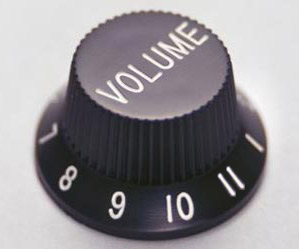Senate Passes Bill to Lower Volume of Commercials

 The Senate has passed the Commercial Advertisement Loudness Mitigation Act, complete with ironic abbreviation (CALM in caps), a bill which would have the Federal Communications Commission regulate the volume of commercials so they cannot exceed the volume of the television shows they accompany.
The Senate has passed the Commercial Advertisement Loudness Mitigation Act, complete with ironic abbreviation (CALM in caps), a bill which would have the Federal Communications Commission regulate the volume of commercials so they cannot exceed the volume of the television shows they accompany.
Though the bill passed the House last December, it is currently awaiting another passing vote from the House, and is then expected to be signed into law by President Obama. The bill would have the FCC create a standard within a year by which commercial volume can be lowered that also adheres to the international standard regarding digital television.
One of the bill’s co-sponsors, Senator Charles Schumer of New York:
“It’s about time we turned down the volume on loud commercials that try to startle TV watchers into paying attention. This is a simple step that will keep ads at the same decibel level as the programs they are interrupting.
TV viewers should be able to watch their favorite programs without fear of losing their hearing when the show goes to a commercial.”
Over at Gizmodo, an anonymous online television engineer explains that the law wouldn’t necessarily prevent commercials from being louder than the programming they accompany, mainly because there’s no unified regulation for online video content: Some content is controlled and changed by the media player in which it plays, while other content is difficult to normalize depending on how many engineers have handled it, and even a commercial filled with music and sound effects is difficult to normalize with a show that’s mainly composed of talking.
Whether or not the anonymous engineer is correct and the bill can’t regulate commercial volume, the weird thing is, if content providers can prove the regulation would be too difficult to employ, they would able to apply for a waiver that would allow them to avoid following the new regulation, which seems to mean all it’d take to circumvent the regulations is a clever lawyer or two, something most corporations have at their disposal.
(via CNET, The Hill, and Gizmodo)
Have a tip we should know? [email protected]